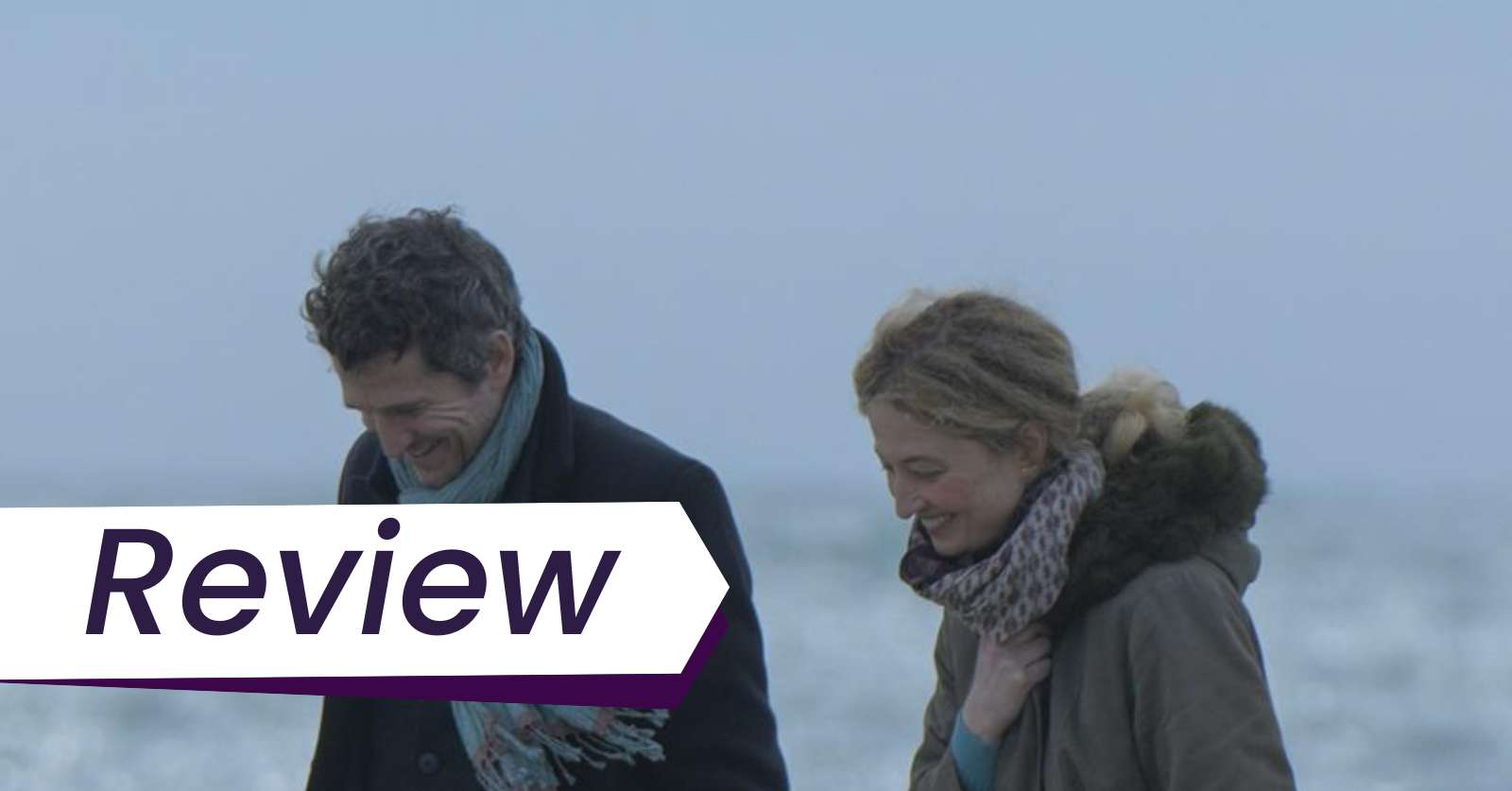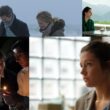Fresh off its Venice premiere, we review Stéphane Brizé’s lovely existential crisis movie with a touch of second chance romance screen, Out of Season (Hors-Saison). The film Out of Season (Hors-Saison) screened at the Cinemania Film Festival. It is still seeking North American distribution.
Discover more great films from Cinemania.

Discover one film you didn’t know you needed:
Not in the zeitgeist. Not pushed by streamers.
But still easy to find — and worth sitting with.
And a guide to help you do just that.
Stéphane Brizé’s latest entry in his cinema of sad, desperate men (The Measure of a Man, At War), Out of Season, is a lovely little film about a depressed actor, Mathieu (Guillaume Canet), who temporarily rekindles an old flame while decompressing at a spa in Quiberon. Out of Season is a film about the choices we make, those that are made for us, and the challenges of living with their consequences. Mathieu is feeling this acutely: he quit the play he was supposed to star in out of panic just as the press for it started rolling out. He’s very embarrassed and financially liable, and his emotionally absent wife, who conspicuously hasn’t joined him on his vacation, can’t even muster much sympathy: in her insensitive, but not incorrect, opinion, he’s merely facing the consequences of his own choices.
When he meets up with his ex-girlfriend Alice (Alba Rohrwacher), who lives in the same town as the spa and looks him up, it triggers existential turmoil for both of them. Alice feels like she’s living with the consequences of Mathieu’s choices — he dumped her twelve years ago, sending her into a deep depression that, as she views it, led her to cleave to the first man who was kind to her. Now she’s married with children and stuck in a life she chose not because she wanted it, but because it was the path of least resistance. Alice and Mathieu initially think the grass is greener on the other side until they eventually let down their walls, at least to some degree, about how unhappy they both are.
Films about male mental health are still few and far between, and Out of Season belongs in the same exalted category as The Eight Mountains, Oslo, August 31st, and Another Round for its sensitive (and often hilarious) depiction of male depression. Without ever underlining that Mathieu is depressed, Brizé depicts the absurdities and indignities of small moments when you are full of self-loathing. In one laugh-out-loud but deeply sad scene, Mathieu lies in bed in his hotel room, pressing buttons on a remote control to repeatedly open and close his bedroom door.
He can’t get up, can’t do anything productive, and is more or less behaving like a teenager. He spends his days seeing an unconvincing life coach and getting pampered at the spa while reading the press about the stage performance of his career that will never materialize and fighting with a coffee machine that won’t turn off until there’s a pool of hot liquid around his mug. As a famous actor, guests and hotel staff constantly ask him for selfies, which forces him to perform confidence and happiness when both are at an all-time low.
Brizé brings the same tenderness to the glimpses of Alice’s life. There’s nothing outwardly awful here. Her husband is kind, if perhaps a bit racist. She loves her daughter. They live in a beautiful house. She makes a living teaching piano, which she loves. But she’s numb to it. Her closest friendship is with an octogenarian, and it’s through a filmed conversation with the older woman who came out late in life that Alice unknowingly reveals her unhappiness.
Together, Mathieu and Alice find a liminal space through walks in the rugged landscape and shared meals at restaurants, where they can both rekindle and finish a relationship that ended abruptly. For both of them, it’s as much about time travel to discover untraveled paths as it is about a brief escape from their current inescapable, unsatisfying realities. They both have children, partners and lives that, if sometimes frustrating or imperfect, they can’t leave. A tender and temporary romance develops, but it’s tinged with longing. It’s not so much for each other and what they could have been as it is for the choices they didn’t make, for a life that’s no longer possible for them.
So much of the film’s light but melancholy feeling comes not just from the windswept, wintery landscape but the wonderful editing by Anne Klotz. The film builds its power from the pacing of seemingly insignificant encounters or events, which take on meaning as they mount and new information is revealed. Klotz’s edits often feel like taking a breath, moving between moments of emotional intensity between characters indoors to moments of wide shots of the landscape, reminding us of the different pace of life in Quiberon compared to Mathieu’s native Paris.
There’s also fantastic work by costume designer Caroline Speith (Full Time, Amanda, Revoir Paris) who is quickly distinguishing herself as one of the best in the business at understated contemporary design that reveals a lot about characters. Mathieu’s sharp tailoring demonstrates his financial success as an actor and the importance of keeping up appearances, perhaps to the detriment of his mental health. Alice wears softer lines and fabrics as she lives a quieter rural life. The colours of the costumes are mostly pale and unsaturated, reflecting how the characters feel like their life has been drained out of them. As the film progresses, the pair find an older, more optimistic version of themselves together. Whether that is the start of a new relationship or the close of an old one is left wonderfully ambiguous.
Related reading/listening to Stéphane Brizé’s Out of Season (Hors-Saison)
More Cinema of Sad Men: Read excerpts from our forthcoming Joachim Trier book on Oslo, August 31st. Listen to the podcast on Another Round and Oslo, August 31st. Read our review of The Eight Mountains. Listen to our podcast discussion about The Eight Mountains. Read our interview with Amanda director Mikhaël Hers. Read our analysis of Vincent Lacoste’s “Sad Man” lead performance in Amanda.
More Guillaume Canet: Read our Cinefranco review of Au nom de la Terre (In the Name of the Land) (2020) and our analysis of his performance.
More French Cinema: Read our recent French Cinema coverage.

